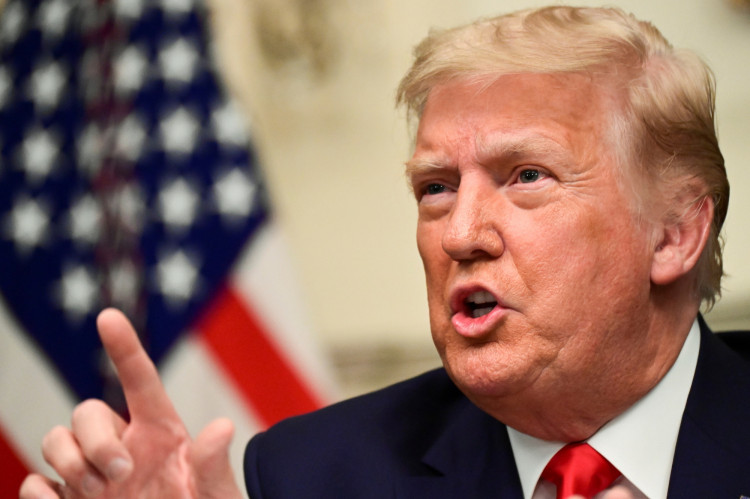Former President Donald Trump has stirred significant controversy with his recent pledge to prioritize the release of individuals convicted in connection with the January 6, 2021, Capitol riots, should he secure a second term in office. Trump's pronouncement, made via a post on his Truth Social platform, indicates a commitment to not only "Close the Border" and advocate for increased oil and gas production under the mantra "DRILL, BABY, DRILL" but also to "Free the January 6 Hostages being wrongfully imprisoned."
This provocative statement aligns with Trump's historical defense of those involved in the Capitol attack, a stance that has been a consistent element of his political narrative. Trump's characterization of the convicted rioters as "hostages" has drawn criticism from legal circles, with U.S. District Judge Royce Lamberth denouncing any attempts to justify the criminal actions tied to the insurrection and pointing out the widespread misinformation surrounding the event.
In the aftermath of the Capitol riot, the Department of Justice has reported significant legal actions, including nearly 1,300 arrests and approximately 750 sentences, a majority of which involved prison time. Political analysts speculate that Trump's re-election could potentially shield him from legal accountability related to his efforts to overturn the 2020 election results.
In a more detailed legal context, Trump himself faces multiple indictments, including charges stemming from the January 6 events and his attempts to subvert the electoral outcome. With charges ranging from conspiracy to defraud the United States to obstruction of an official proceeding, Trump confronts potential decades of imprisonment if convicted.
Amid this legal turmoil, Trump's commitment to pardoning the January 6 convicts has ignited a debate over the implications of such an action. Critics, including Biden campaign spokesperson Sarafina Chitika, accuse Trump of pandering to lawbreakers and undermining democratic norms. Chitika emphasized the enduring memory of the Capitol attack among the American electorate, framing Trump as a threat to the nation's democratic foundations.
The issue of pardons for January 6 convicts was a recurring theme in Trump's Republican primary campaign, resonating with a segment of his base that views the defendants as victims of unfair treatment. Despite expressing a general inclination to pardon "a large portion" of the defendants, Trump has indicated that there may be exceptions for those who "got out of control."
As the political landscape heats up in anticipation of the next presidential election, Trump's bold pledge continues to polarize opinions, with Democrats asserting that the American public will reject Trump's bid for re-election due to the indelible mark left by the January 6 insurrection.






